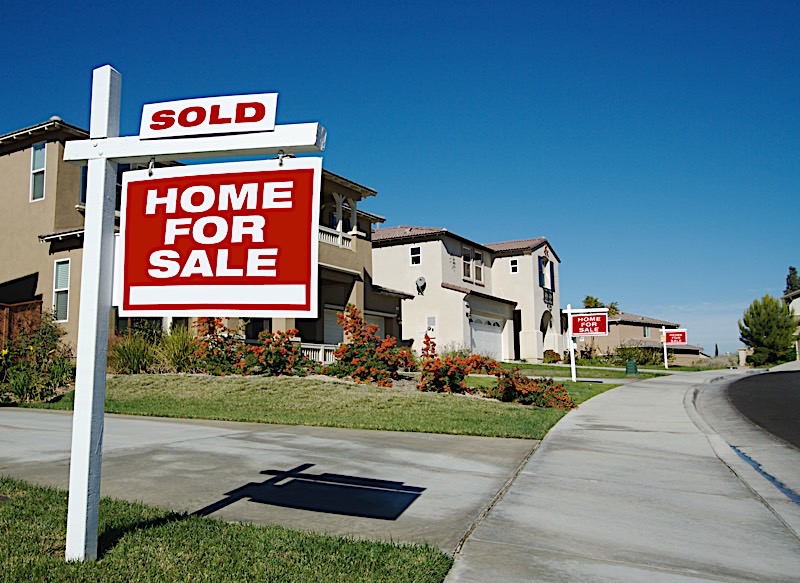The Only Guide You Need For Selling A Rental Property
By Than Merrill
Selling a rental property isn’t all that different from selling any other single-family asset. Outside of dealing with tenants and foregoing the option of collecting rent on a monthly basis, selling a rental property is almost identical to selling your average, everyday rehab. If done correctly — and with due diligence in mind — selling an asset could pad your investment coffers with some much appreciated profits. That said, while similar, there are important differences to keep in mind, many of which I will delve into further down.
It is worth noting, however, that those rental properties aren’t going to sell themselves; someone is going to have to roll their sleeves up. That is, of course, if you want to realize success as an investor. At the very least, selling an investment property isn’t something every investor should know; it’s something they need to know.
So whether you don’t know how to sell an investment property, or you simply need a refresher, here’s a quick primer on the process as a whole.
How To Sell A Rental Property The Right Way
While it is possible to sell a rental property by initiating a single strategy, it’s in your best interest to exercise multiple options. That way, you give yourself the best odds at realizing success. Instead of trying one strategy at a time, for example, put everything you have into the sale. In doing so, you give yourself the best odds of selling the home faster and for more money. And what is a great sale if not for one that nets you more profits in less time?
If you want to give yourself the best odds of selling your rental property, try the following:
1. The Presell
Today’s most prolific real estate investors already know it, and so should you: selling a property (whether it’s currently a rental property or not) starts well before you entertain your first buyer. Perhaps even more specifically, the selling process starts before the home is listed. You should start “pre-selling” your home at the earliest possible point. In doing so, you will want to inform your tenants that you will not be renewing their lease and that you have set a date for them to be out of your property. As with everything else in real estate, you need to be as transparent as possible when selling a rental property. Remember, your renters may not share your sentiment in selling the property, so approach this scenario tactfully and respectively.
Once your tenants have been informed they will need to move (laws usually state 30 to 60 days should suffice), start prepping for the task ahead. Talk to any investors you may have on your buyers list. Spread the word that you will have a home on the market sooner rather than later. Set up your selling foundation (buy a lockbox, pull comps, organize property details, take professional photos, and anything else you believe will facilitate a future sale). It is at this point that you will want to gain exposure in the local community and prep for the task at hand.
2. Price It Right
Once you have completed your pre-sale homework, you should have an idea of what comparables are priced at, and how your home stacks up to the competition. Use the information to determine your own price point, because I can assure you every buyer you come across will compare your home to similar ones in the neighborhood. It is, therefore, in your best interest to price your home right. Too high, and buyers will question why your home costs more than the other comps. Too low, and you could lose out on profits.
Instead of throwing a price out there to see if it sticks, I highly recommend setting the price point just under the closest comparables. That way, you will draw more interest than ire. Perhaps even more importantly, however, is the competition that may ensue. You see, in setting a “lower” price point, you may create competition with the potential of driving your price even higher. The demand created from the attractive price point is more advantageous than setting an arbitrarily higher price point from the beginning. You could very easily make more by setting the price point lower.
3. Online Marketing Campaign
Once you have laid the foundation for your impending sale, proceed to market your property online. At the very least, the greater majority will initiate their home searches online, so you have no reason not to have an online presence. To start things off, post your home on classified websites like Craigslist. These sites not only allow you to market your properties to a large audience, but they also give you a chance to promote your entire business. In addition, consider posting your home on contractor websites and agents’ websites.
4. Turning To Your Buyers List
As an investor, it’s important not to forget those that are already in your inner circle. You should already have a network of like-minded investors in your corner; use them to your advantage. There’s no reason you can’t at least ask them if any are interested in acquiring your property. The worst that can happen is that they say no, but even if they don’t want the home, there’s a chance they might know someone that does. So before you even list your property, try talking to your own network first.
5. List The Property
While the inexperienced seller is quick to list their property on the multiple listing service (MLS), experienced investors know the value of the steps I discussed up to this point. Only once you have completed the first four steps, however, can I recommend posting your property on the MLS. If for nothing else, the foundation created by steps one through four will make listing your property on the MLS even more powerful. It is the MLS, after all, that will push your efforts over the top. With your home on the MLS, its exposure will increase significantly, and that’s exactly what you want. The more buyers that see your property, the more demand your previously discussed price point will resonate with prospective buyers.
6. Hire An Agent
Aligning your services with a real estate agent will cost you more money than if you were to go at it alone, but I digress. Selling a rental property is a big task, and nobody is more up to the task than a licensed real estate agent. I highly recommend hiring an agent that has your best interest at heart. Hiring an agent is as much of an investment as the property itself. Sure, it will cost you, but their price is certainly justifiable, especially when you consider that a good agent should be able to sell your home faster and for more money.
7. Host An Open House
Selling a rental property has more to do with the sum of all the parts, as opposed to one single strategy. That’s why you can’t count on one single strategy to sell a home; you need to implement every method at your disposal, and there’s one nobody should ignore: the open house. Open houses are a great way to generate traffic. Combined with a competitive price point, a good open house could create a sense of demand that pits potential suitors against each other — in your favor, nonetheless.
8. Post Analysis
Truly great investors already know that selling doesn’t end once you have exchanged a property for capital; no, there is still plenty to do. Namely, investors need to conduct a post-analysis on their entire process. What was it that actually sold the home? What could you have done more efficiently? What did you do well? The idea is to answer these questions — and many more — without bias and apply what you learn to the next sale. Doing so will make selling a rental property that much easier the next time around.
[ Thinking of buying a rental property? Get a FREE downloadable copy of our “Essential Contract Pack For Cashflow Real Estate Investors” ]

What Is The Capital Gains Tax On The Sale Of A Rental Property?
Today’s best buy and hold renters are more than aware of the benefits offered by rental property depreciation; it’s a great tax break for those with depreciable assets (like a rental property). However, the same rental property depreciation most buy and hold investors covet can turn into a nightmare in the event they want to sell. If for nothing else, capital gains taxes on rental properties are much steeper for those that claimed depreciation losses on the property. Or, as Investopedia so eloquently puts it, you will have to pay at lot more in taxes at the time of sale “if the property lost money and you used the loss against your tax bill in previous years.”
The Tax Implications Of Selling A Rental Property At A Loss
If you find yourself in a position where you must sell your rental property at a loss, it may be comforting to learn that you may be eligible for “favorable” tax treatment. That said, before you assume you are selling your rental at a loss, make absolutely certain that you actually have a tax loss — it’s not always as cut and dry as many would assume.
According to TurboTax, to identify whether or not you have a tax gain or loss “you will need to compare the property’s sale price to its tax basis. The tax basis is generally your original purchase price, plus the cost of improvements (not counting expenses you’ve deducted as repairs and maintenance), minus any depreciation deductions you claimed while you owned it.”
If you are, in fact, selling for a tax loss, you may be eligible for more favorable tax rules. For example, if you sell a rental property that you have owned for more than a year at a loss, your transaction qualifies as a Section 1231 loss — which could actually work in your favor. For starters, “Section 1231 losses can be used to reduce any type of income you may have,” according to TurboTax. More specifically, Section 1231 losses can reduce your tax obligations. If the losses on your rental property are enough to reduce your other forms of income below zero, you may even qualify to reduce income tax obligations in previous years.
While nobody wants to sell their rental property at a loss, it is a reality for far too many people. That said, all is not lost. The powers that be have decided to take a little “sting” out of the transaction by offering more favorable tax rules. Section 1231 losses, therefore, ease the burden of losing money on a rental property deal, but to be certain if you qualify, check with a trained tax professional. The information here isn’t meant to serve as tax advice, but rather a quick primer on the subject matter.
Before you attempt to claim Section 1231 losses, consult a qualified tax professional to make sure you are abiding by the law.

When Is The Right Time To Sell A Rental Property?
I can say, with much confidence might I add, that the best time to sell a rental property is when you are ready; not when someone else tells you otherwise or the market makes drastic moves in your favor. There is no universal time of the year when selling a rental property makes more sense. Of course, the spring and summer months have become synonymous with selling seasons, but most sales figures are rendered moot in the face of personal situations. What may be a great time of the year for one investor to sell a rental property may represent a terrible choice for another.
All things considered, I would approach the proposed question from a more subjective point of view. Instead of answering it with a specific time period, I maintain that the best time to sell a rental property is when you can justify ridding yourself of a potentially cash flowing asset for one large lump sum of capital.
Everyone’s answer will be different, as there is no “best” time to sell a rental property, only a time when you are ready to accomplish whatever it is you set out to do originally.
Some investors, for example, may want to cash in on their asset when home values are high for the sole purposes of buying another rental property. Others may have better luck holding onto their assets at times when values are historically high, as they are now. That way, they can capitalize on equally high rents.
Again, there is no right time to sell; only a time that suits you best. So before you answer this question for yourself, first identify what your endgame is. Only once you know what your exit strategy is can I recommend moving forward with any type of transaction.
Key Takeaways
- While selling a rental property shares a lot of similarities with their personal use counterparts, there are a lot of differences you need to pay attention to.
- Selling an investment property is something every investor needs to familiarize themselves with.
- Rental properties have different tax regulations when it comes time to selling; it’s in your best interest to know what they are.